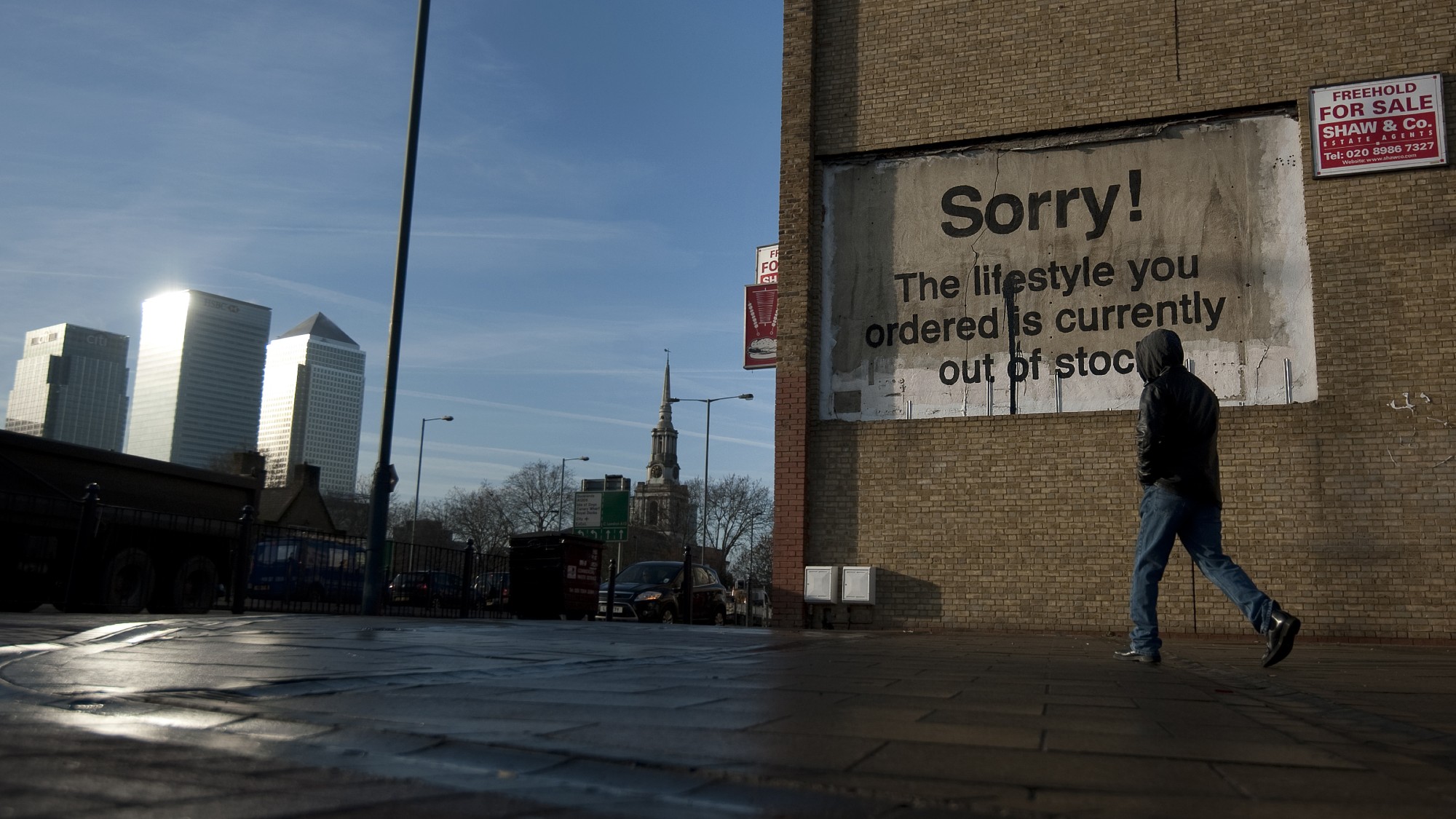The UK's national debt: a terrifying warning
OBR's 'grim' report on Britain's fiscal outlook warns of skyrocketing spending, but 'projection' is not a 'forecast'

A free daily email with the biggest news stories of the day – and the best features from TheWeek.com
You are now subscribed
Your newsletter sign-up was successful
When it comes to the public finances, Britain is swirling in a "maelstrom of denial, obfuscation and avoidance", said Paul Johnson in The Times.
In the coming years, we will need to spend untold billions more on health, pensions, defence and battling climate change, while losing tens of billions in fuel duties. Neither main party has any realistic plan for how this will be done. To our national shame, Labour, like the Tories before it, looks set to shirk the biggest fiscal challenge facing Britain today: fixing social care, which has been in a mess for decades.
And now, into this already turbulent picture, the Office for Budget Responsibility (OBR) has just chucked "an enormous brick", with its report on the fiscal risks facing Britain over the next 50 years.
The Week
Escape your echo chamber. Get the facts behind the news, plus analysis from multiple perspectives.

Sign up for The Week's Free Newsletters
From our morning news briefing to a weekly Good News Newsletter, get the best of The Week delivered directly to your inbox.
From our morning news briefing to a weekly Good News Newsletter, get the best of The Week delivered directly to your inbox.
Economic growth: the 'holy grail'
"No question, it is grim stuff," said Larry Elliott in The Guardian. It projects a near tripling of the national debt from just under 100% of GDP now (and 30% only 20 years ago) to 274% by the mid-2070s. Public spending is set to jump from 45% to 60% of GDP, as health costs double and pensions rise sharply, while government revenues get stuck at around 40%.
Crucially, the OBR's warning is a "projection" of what would happen on current trends, not a "forecast" of what actually will happen, said Martin Wolf in the Financial Times. The report itself notes that no government would let debt reach such an "unsustainable level". Still, the question is: how can we alter this terrifying trajectory?
The "holy grail" is economic growth, and its close cousin productivity. The OBR's sums are based on average productivity growth of 1.5% a year for 50 years. Even nudging that up to 1.6% would make a substantial difference. And if we managed to average 2.5% – the level before the global financial crisis of 2007/08 – the national debt would fall to 65% of GDP by the mid-2070s. Does Labour, though, have a realistic plan for achieving any of this?
Interest-fuelled 'doom-loop' of debt
"People sometimes ask me why we should worry about government debt rising from one massive number to even bigger numbers," said David Smith in The Sunday Times.
A free daily email with the biggest news stories of the day – and the best features from TheWeek.com
The short answer is: the cost of servicing it. In this decade, the cost of paying interest on the UK's national debt will average around £100 billion – "dwarfing the spending of most government departments". This risks sucking the nation into an interest-fuelled "doom-loop" of debt.
The main factors pushing debt higher are familiar and daunting: an ageing population; a falling birthrate; the costs of reducing fossil fuel use. Yet reducing the debt, by raising taxes and cutting spending, risks "hobbling the economy". We need to hear "much more" from the Government about how this circle will be squared.
-
 James Van Der Beek obituary: fresh-faced Dawson’s Creek star
James Van Der Beek obituary: fresh-faced Dawson’s Creek starIn The Spotlight Van Der Beek fronted one of the most successful teen dramas of the 90s – but his Dawson fame proved a double-edged sword
-
 Is Andrew’s arrest the end for the monarchy?
Is Andrew’s arrest the end for the monarchy?Today's Big Question The King has distanced the Royal Family from his disgraced brother but a ‘fit of revolutionary disgust’ could still wipe them out
-
 Quiz of The Week: 14 – 20 February
Quiz of The Week: 14 – 20 FebruaryQuiz Have you been paying attention to The Week’s news?
-
 Health insurance: Premiums soar as ACA subsidies end
Health insurance: Premiums soar as ACA subsidies endFeature 1.4 million people have dropped coverage
-
 Anthropic: AI triggers the ‘SaaSpocalypse’
Anthropic: AI triggers the ‘SaaSpocalypse’Feature A grim reaper for software services?
-
 Currencies: Why Trump wants a weak dollar
Currencies: Why Trump wants a weak dollarFeature The dollar has fallen 12% since Trump took office
-
 Is the US in a hiring recession?
Is the US in a hiring recession?Today's Big Question The economy is growing. Job openings are not.
-
 Elon Musk’s starry mega-merger
Elon Musk’s starry mega-mergerTalking Point SpaceX founder is promising investors a rocket trip to the future – and a sprawling conglomerate to boot
-
 TikTok: New owners, same risks
TikTok: New owners, same risksFeature What are Larry Ellison’s plans for TikTok US?
-
 Trump wants a weaker dollar, but economists aren’t so sure
Trump wants a weaker dollar, but economists aren’t so sureTalking Points A weaker dollar can make imports more expensive but also boost gold
-
 Will SpaceX, OpenAI and Anthropic make 2026 the year of mega tech listings?
Will SpaceX, OpenAI and Anthropic make 2026 the year of mega tech listings?In Depth SpaceX float may come as soon as this year, and would be the largest IPO in history